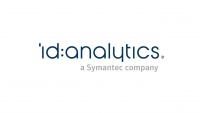Data brokers
Data brokers are companies that collect information on consumers, package consumer data, and sell it to businesses or government agencies. They gather their data from government sources, publicly available sources, and commercial data sources. Data brokers create profiles based on the data they have collected. These profiles are designed to predict future consumer behavior. The three main types of data brokerage companies are marketing, risk mitigation, and people search products. There are few laws that govern these companies, and ethical issues have risen as a result of their mass collection of personal information. Ethical challenges society faces as a result of data brokerage are privacy, discrimination by categorizing individuals, and problems with data inaccuracy.
Origins
In 1965, Gordon Moore, the co-founder of Intel Corporation, noticed that the number of transistors on a chip doubled every year from 1959-1965.[1] This later became known as Moore's Law: the expectation that the number of transistors on a given chip will continue to double every two years. The fast-paced improvement came to be from a decrease in the cost of computing. Lower costs allowed for software and hardware development to flourish. The rapid advancement of more powerful computing, networking, and data storage has led to the field of Big Data. Big Data is the collection and analysis of large amounts of data by both government agencies and corporations.[1] The Big Data field is responsible for the formation of the Data Broking industry.
Data Collection
Data brokers use algorithms to predict an individual's health, financial status, interests, sexual orientation, religion, political beliefs, habits, and more. This data is then sold to government agencies and corporations who use the information for a variety of different purposes: verifying an individual's identity, marketing products, detecting fraud, and to get more information on individuals.Consumers often are not aware that data broking companies exist, and that they are aggregating their personal information. In May 2014, the Federal Trade Commission (FTC) released a report that shed light on the Data broker industry, Data Brokers: A Call for Transparency and Accountability. Before this report, the inner workings of the Data broker industry was unknown to people not working at any of these companies. Within the document the FTC listed the main Data broker sources: the government, publicly available sources (social media, blogs, the internet), and commercial data sources.
Government Sources
Data brokers gather information from the federal, state, and local governments. The government agencies that data brokers use include the U.S Census Bureau, Social Security Administration, U.S Postal Service, Federal Bureau of Investigation, U.S Secret Service, and the European Union.[2] These sources provide information on individuals: ethnicity, age, education level, household makeup, income, occupations, commute times, and addresses. The U.S Secret Service and European Union give access to most wanted lists or terrorists watch lists.[2] State and local governments provide information, including licenses, real property and assessor records, assessed value, liens, deeds, mortgages, mortgage releases, pre-foreclosures, identifying information about the owner, voter registration information, motor vehicle and driving records, and court records.
Data brokers do not always get information directly from state and local governments. Data brokers will hire individuals to go to local offices to gather data or, if the company has a strong relationships with a government office, the data broker will be given access to the data automatically.[2] There are some state laws that prohibit companies from gathering personal information from government sources. The Federal Driver's Privacy Protection Act ("DPPA") does not allow the release of motor vehicle and driving record information unless it is requested by law enforcement, insurance, and identity verification or fraud detection.[3] Also, in twenty-two states it is illegal to use voter registration record for commercial or non-election purposes.[2]
Publicly Available Sources
Data Brokers get information from publicly available sources such as directories, press reports, and posts on the internet.[2] Companies will use web crawling as a method for data collection. Web crawlers are programs that search through the web in an automated way, and it reports the data back to a specified server.[4] When users do not set their privacy settings to restrict access to their information on various sites, Data brokers will pull all available information from these websites. For example, Data brokers will crawl individuals' social media profiles for information.
Data brokers have various methods for collecting publicly available sources. Data brokers can gather information by acquiring printed records and directories, or they can arrange for collection processing of information. Collection processing of information can be set up like a daily news feed for updated public information. The final way they gather data is through Application Programing Interface (API). Sources for Data brokers will make an API that the company can use to process the data.[2]
Commercial Data Sources
Data brokers gather information from commercial sources: retailers, catalog companies, magazine publishers, registration websites, merchants and financial service clients. This information can include types of purchases or subscriptions sold, how much they paid, dates of purchase, and method of payment. Registration websites refers to sites where consumers receive services, such as retail, news, finances, and travel. In an FTC report, data brokers can retrieve personal information from financial service companies, such as health related purchases.[2]
Data brokers get over fifty percent of their data from other data brokers.[2] Information gets repeatedly cycled back and forth from one data broking company to another. This process makes finding a data element's origin difficult, if not impossible.
Examples of Data Brokers
There are three main types of products that data broking companies provide: marketing products, people search and risk mitigation.
Marketing Products
Acxiom is public Data broker company founded in 1969.[5] In 2017, the company made 880.2 million in revenue. This is a 3.2 percent increase from 2016.[6] The company mainly uses the data it collects on individuals to provide marketing products for a wide range of companies; although, they do offer people search and identity theft products.
Their marketing product allows companies to carry-out people-based marketing, and receive a higher return on their marketing investments.[6] People-based marketing refers to creating relevant advertisements, better service, improved offerings, and special promotions for consumers.[7] According to an Acxiom brochure, Understanding Acxiom's Marketing Products, the company groups people together and forms lists based on similar characteristics. These lists help assist marketing strategies by showing the target customers for a product or service, and ways to reach the market of interest. For example, Acxiom has a Personicx cluster, which categorizes people into one of 70 segments based on demographics. The 70 clusters are based on 21 life stages: having a baby, retirement, marriage, income, and more.[8]
Risk Mitigation
ID Analytics was founded in 2002. The company offers businesses a product that helps with identity authentication, detecting fraud, identity risk, and creditworthiness. Their goal is to prevent fraud and decrease credit risk. According to ID Analytics website, they study the connections and relationships of identity elements. From this data they are able to infer risk by using algorithms to weigh consumer behavioral information within their database, the ID Network.[9]
The company rates consumers on a scale based on personal information and connections made by the software. The software generates an ID Score.[9] The personal information they use when calculating an ID Score includes social security number, name, address, and emails. The ID Score First-Party Fraud algorithm looks for attributes that categorize a thief, and these attributes are quantified by a particular rating.[9]
People Search
Intelius was founded in 2013. Their product gives consumers access to information on individuals.[10] The company offers background checks and people search results.[11] According to the Intelius website, the people search tool allows individuals who are seeking to reconnect, or get more information about someone, to use the platform. Anyone can type in a person's first name, last name and city or state in the search bar on the web site. Intelius will link the search terms to possible people, with an option to view further data: contact information, address history, age, birthdate, relatives, and more.[10]
Ethical Challenges
Privacy
There are no federal laws that hold data brokers accountable for maintaining the privacy of customers unless the data broker is using the data for employment records, credit, insurance, or housing.[12] Privacy advocates argue that the ethics of collecting personal data without an individual's knowledge. Consumers are unable to track down the source of the information, due to the multi-layered process data broker's use to collect data, and people often do not know a data element's purpose for collection. Ethicists are advocating for greater transparency, and argue that individuals have a right to control their personal private information from being analyzed and sold for the monetary gain of others. In 2013, the former commissioner of the Federal Trade Commission, Julie Brill, posed concerns about data brokers breaching the privacy of consumers by analyzing personal data points without permission or consumer knowledge.[13]
Marketing data brokers claim that the data analysis and predicted behaviors they sell are unidentifiable and cannot be traced backed to a particular person. Critics have demonstrated that Data broker's products have data elements that are linkable to individuals.[13] There is high concern that a data breach could expose highly sensitive information about a consumer, endangering their safety and privacy rights.
Issues with Categorizing Individuals
Reachers express concerns that data broking marketing products are excluding certain populations from their markets and benefits.[14] When data brokers, like Acxiom, categorize individuals, they face unintended discriminatory consequences. The different populations receive advertisements and offers for entirely different products. A 2016 report published by the Federal Trade Commission, Big Data: A Tool for Inclusion or Exclusion? Understanding the Issues, outlines the risks that can occur when companies use Big Data for targeting market segments. The categorizations of these groups can reinforce and/or create disparities among those that belong to particular groups. In regards to financial products, a low socioeconomic group may never receive worse offers financial opportunities, although they may be eligible for a better one.[14] High socioeconomic groups will reap the benefits of this discrimination, while those who have a lower income may not be given the same opportunities because of their socioeconomic class. The differentiation of access has the potential to create new societal inequalities.
Consequences of Inaccurate Data
Data brokers do not always have accurate data about individuals. In a report issued by the Office of the Attorney General Department of Financial Regulation, a person's data profile can be corrupted or have mistakes. Incorrect data is perpetuated by the the process of data collection.[15] Errors among a person's profile are most harmful when data broking companies are using this data for risk mitigation, like ID Analytics. In 2012, the FTC reported that a major credit reporting company made credit reports using incorrect data for 21% of consumers. Of the 21% of consumers, 5.2% were able to challenge their credit assessments which could have raised their interest rates and lowered their credit score.[15] Incorrect data on a person's profile can have unfair consequences.
References
- ↑ 1.0 1.1 Richards, Neil M.; King, Jonathan H. "Big Data Ethics," Wake Forest Law Review vol. 49, no. 2 (2014): p. 393-432, http://heinonline.org/HOL/Page?handle=hein.journals/wflr49&div=16&g_sent=1&casa_token=&collection=journals.
- ↑ 2.0 2.1 2.2 2.3 2.4 2.5 2.6 2.7 Ramirez, Edith , et al. "Data Brokers: A Call For Transparency and Accountability." Federal Trade Commission, 27 May 2014, www.ftc.gov/reports/data-brokers-call-transparency-accountability-report-federal-trade-commission-may-2014.
- ↑ "18 U.S. Code § 2721 - Prohibition on release and use of certain personal information from State motor vehicle records." LII / Legal Information Institute, www.law.cornell.edu/uscode/text/18/2721.
- ↑ "Web crawler." ScienceDaily, ScienceDaily, www.sciencedaily.com/terms/web_crawler.htm.
- ↑ “Company-Histories.com.” Acxiom Corporation -- Company History, www.company-histories.com/Acxiom-Corporation-Company-History.html.
- ↑ 6.0 6.1 Annual Report 2017. Acxiom Corporation, 2017, https://s21.q4cdn.com/580938034/files/doc_financials/annual_reports/Annual-Report-2017-(Web-ready).pdf.
- ↑ Understanding Acxiom's Marketing Products. Acxiom Corporation, 2012, https://www.acxiom.com/wp-content/uploads/2013/09/Acxiom-Marketing-Products.pdf.
- ↑ “Consumer Data Information.” Acxiom, 2018, www.acxiom.com/about-us/privacy/consumer-data-information/.
- ↑ 9.0 9.1 9.2 “Personal Topology – ID Analytics.” ID Analytics, ID Analytics, 2018, www.idanalytics.com/our-business-model/personal-topology/.
- ↑ 10.0 10.1 “Intelius .” Intelius, Intelius, Inc. , 2018, https://www.intelius.com/.
- ↑ “Company Overview of Intelius, Inc.” Bloomberg, Bloomberg, 2018, www.bloomberg.com/research/stocks/private/snapshot.asp?privcapId=13647613.
- ↑ “Data Brokers and "People Search" Sites.” Privacy Rights Clearinghouse, Privacy Rights Clearinghouse, 17 Oct. 2017, www.privacyrights.org/consumer-guides/data-brokers-and-people-search-sites#How accurate is data broker information.
- ↑ 13.0 13.1 Brill, Julie. “Reclaim Your Name.” Federal Trade Commission, Federal Trade Commission, 26 June 2013, www.ftc.gov/public-statements/2013/06/reclaim-your-name.
- ↑ 14.0 14.1 Ramirez, Edith, et al. “Big Data: A Tool for Inclusion or Exclusion? Understanding the Issues (FTC Report).” Federal Trade Commission, Federal Trade Commission, Jan. 2016, www.ftc.gov/reports/big-data-tool-inclusion-or-exclusion-understanding-issues-ftc-report.
- ↑ 15.0 15.1 “Report to the General Assembly of the Data Broker Working Group Issued Pursuant to Act 66 of 2017.” Department of Financial Regulation, State of Vermont, 15 Dec. 2017, www.dfr.vermont.gov/dfr-and-attorney-general%E2%80%99s-office-release-data-brokers-working-group-report.



